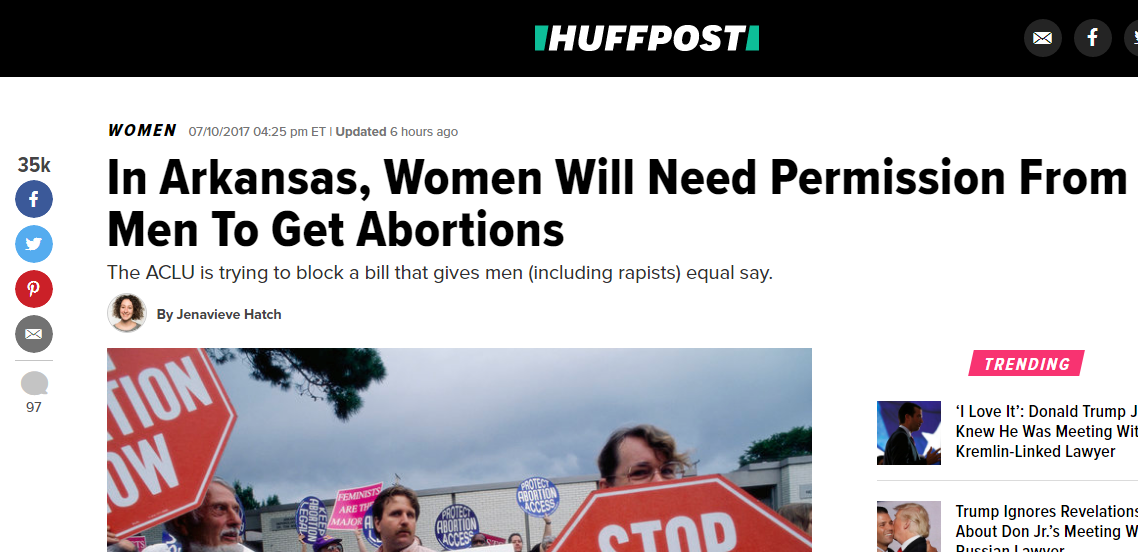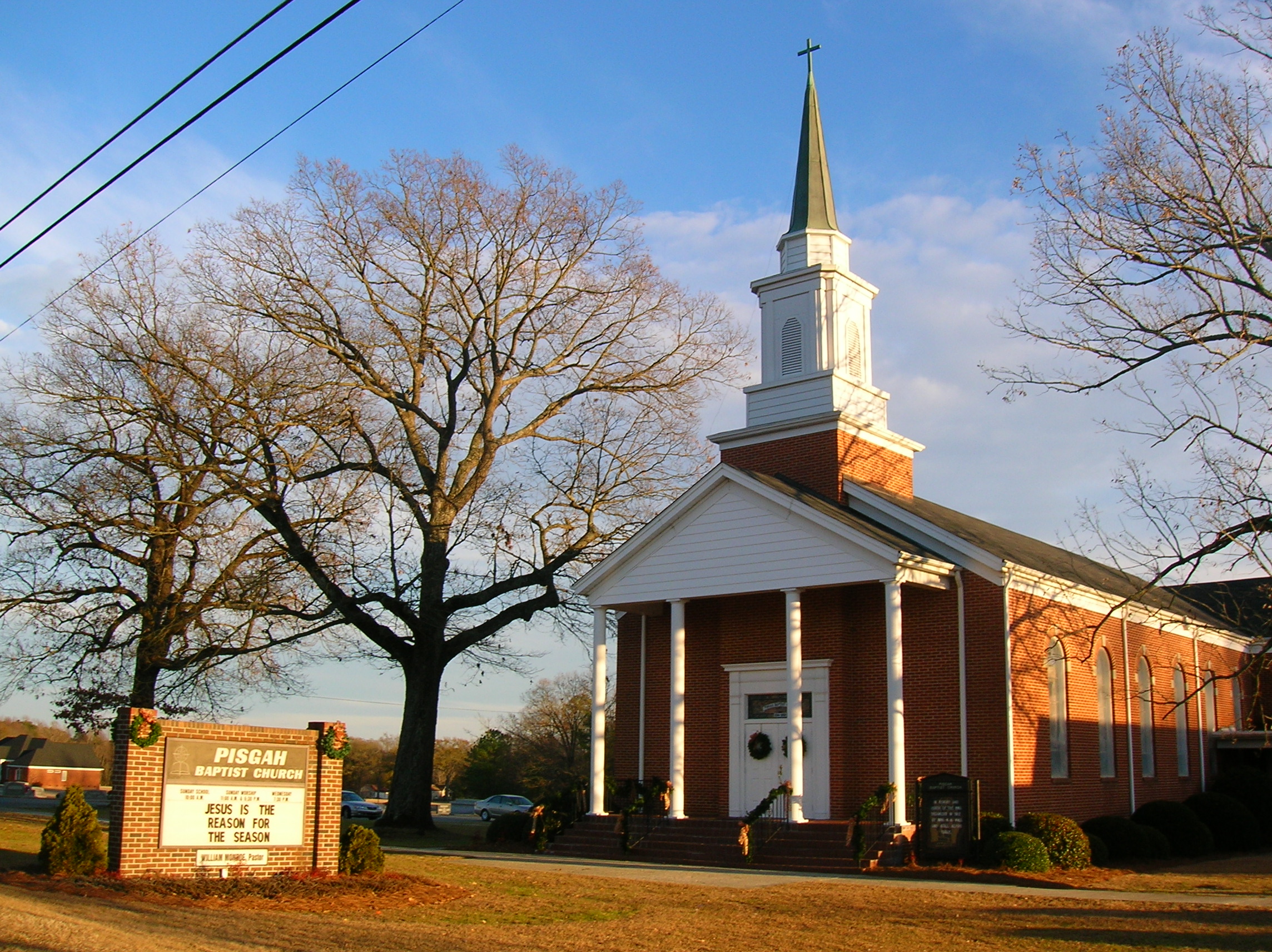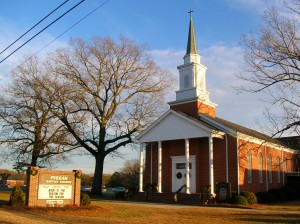Cutting Though the Confusion on Arkansas’ Abortion Laws
 Yesterday the Huffington Post published a column regarding pro-life laws passed by the Arkansas Legislature earlier this year.
Yesterday the Huffington Post published a column regarding pro-life laws passed by the Arkansas Legislature earlier this year.
The article contains some confusion about the laws and what they do. We want to set the record straight.
First, the article’s title claims Arkansas’ new pro-life laws will require women to get permission from men before they can have an abortion. This is not true.
This title seems to be based on a debunked argument a few people tried to use against Rep. Andy Mayberry’s (R-Hensley) bill to ban dismemberment abortions earlier this year.
At the time, some abortion advocates tried to argue the bill would let the father of the unborn child sue to stop the mother from getting an abortion. This argument began popping up on websites and in emails back in February, but it was quickly debunked by people who took the time to read and understand the bill. The Huffington Post is simply recycling incorrect information.
The article also refers to H.B. 1566 by Rep. Kim Hammer (R-Benton) as a “personhood law” and says the law will force a woman to tell the father of the unborn baby she plans to have an abortion.
H.B. 1566 was not a “personhood law.” Nothing in the law says that an unborn baby is a person. And H.B. 1566 does not require women to tell anyone they plan to have an abortion, either.
Instead, H.B. 1566 does two things.
First, it prohibits research on aborted fetal remains; this will help prevent companies from buying or selling organs harvested from aborted babies.
Second, H.B. 1566 says aborted babies will be disposed of according to the Arkansas Final Disposition Rights Act of 2009. This will ensure aborted babies are respectfully buried or cremated. In the past, Arkansas law has allowed the bodies of aborted babies to be incinerated as medical waste.
H.B. 1566 does not stop a woman from having an abortion; instead it helps stop companies from buying or selling aborted baby parts, and it ensures aborted babies are treated respectfully.
The article also implies H.B. 1566 would force a woman who has been raped to consult with her attacker before she can have an abortion or bury or cremate the aborted baby. Again, this simply is not true.
H.B. 1566 doesn’t require a woman to get consent from anyone before having an abortion, and Arkansas law does not recognize the parental rights of rapists. That is something the Arkansas Legislature has worked hard to address in the past.
Unfortunately, we are seeing a lot of misinformation being shared online thanks to social media and shoddy journalism.
My advice is simple: If you want to understand Arkansas’ five pro-life laws the ACLU is challenging in court, read them for yourself. You can find links to all five of them below.
Act 603 regarding the remains of aborted babies: http://www.arkleg.state.ar.us/assembly/2017/2017R/Acts/Act603.pdf
Act 45 regarding dismemberment abortion: http://www.arkleg.state.ar.us/assembly/2017/2017R/Acts/Act45.pdf
Act 733 regarding sex-selection abortion: http://www.arkleg.state.ar.us/assembly/2017/2017R/Acts/Act733.pdf
Act 1018 regarding reporting of abortions on underage girls: http://www.arkleg.state.ar.us/assembly/2017/2017R/Acts/Act1018.pdf
Act 383 regarding the licensing and inspection of abortion clinics: http://www.arkleg.state.ar.us/assembly/2017/2017R/Acts/Act383.pdf



